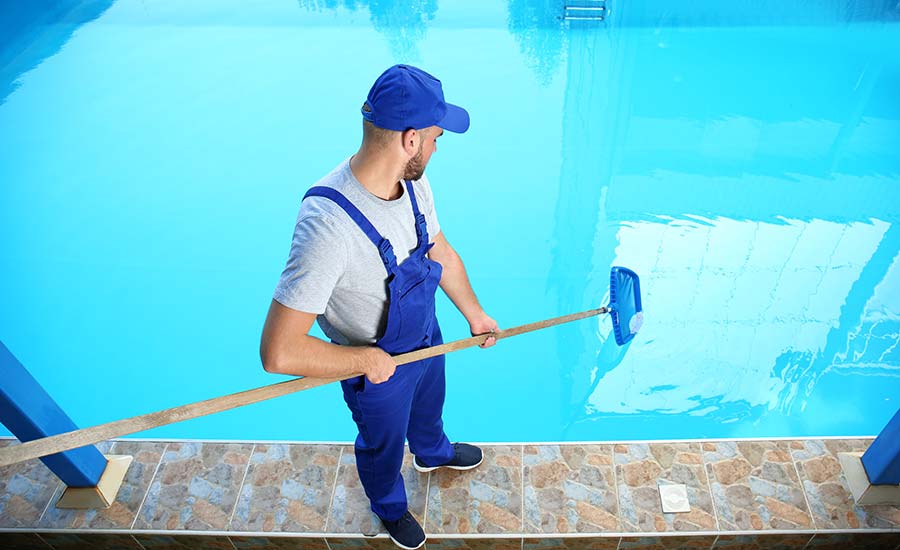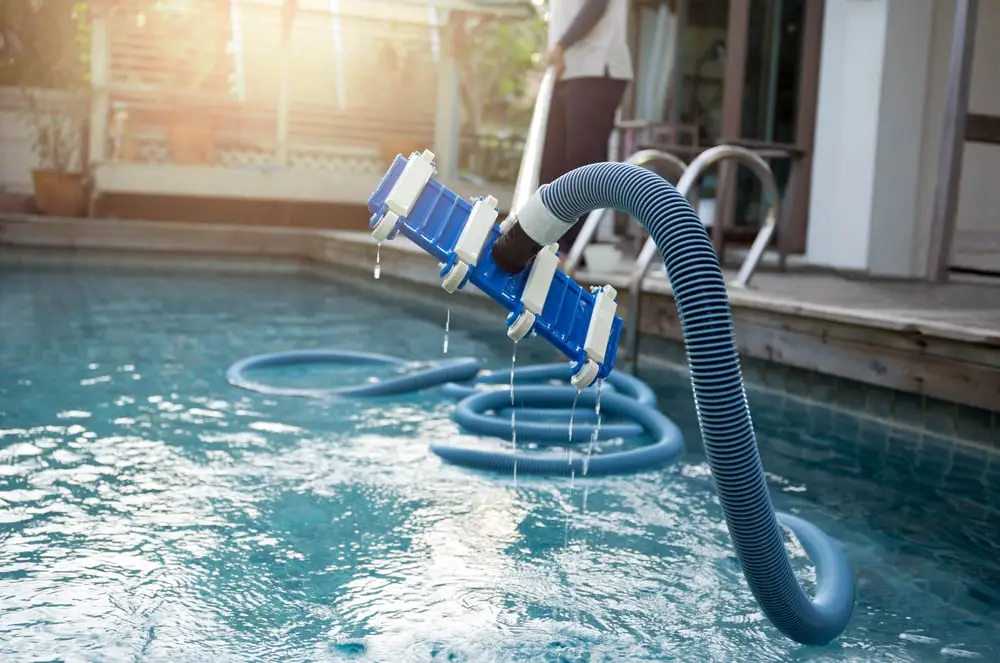Important Swimming Pool Maintenance Tips to Maintain Your Water Sparkling Clean
Keeping a pristine swimming pool calls for an organized technique to water care and tidiness, which ultimately contributes to both the aesthetic allure and long life of the swimming pool itself. Sticking to these essential strategies not only enhances the quality of your swimming pool water yet additionally safeguards against potential problems that could rise into pricey repairs.
Test Water Chemistry Regularly
To guarantee a delightful and secure swimming experience, consistently examining water chemistry is necessary. Appropriate water equilibrium not just boosts swimmer convenience but also secures pool devices and surface areas. The main chemical specifications to keep an eye on consist of pH, chlorine levels, alkalinity, and calcium firmness.
pH levels must be maintained between 7.2 and 7.8, as this array lessens skin and eye irritation while optimizing chlorine effectiveness. Chlorine degrees need to preferably be between 1-3 parts per million (ppm) to provide appropriate sanitation without creating unpleasant smells or inflammation. Complete alkalinity, which works as a barrier for pH, should be maintained between 80-120 ppm to maintain water chemistry and prevent changes.

Keep the Pool Filter Clean
Preserving appropriate water chemistry is just part of reliable swimming pool treatment; maintaining the swimming pool filter tidy is similarly important for optimal performance. The swimming pool filter plays a vital role in removing debris, dirt, and contaminants from the water, guaranteeing a safe and enjoyable swimming environment. With time, filters can become obstructed with bits, which can dramatically decrease their performance.

Additionally, keep an eye on the stress gauge on your filter system. A stress boost of 8-10 psi above the typical operating range usually shows that it's time for cleansing. Neglecting to keep a clean filter can bring about inadequate water flow, unbalanced chemistry, and raised pressure on the swimming pool pump, inevitably leading to greater energy prices and prospective equipment failing.
Skim and Brush Often

Brushing the pool walls and flooring is just as crucial. It assists get rid of algae, dust, and other contaminants that may hold on to surface areas. This task must be done at the very least when a week, focusing on locations with bad flow, such as edges and steps - Pool Inspection. Make use of a swimming pool brush with a suitable bristle type for your pool surface-- nylon brushes for plastic or fiberglass pools, and stainless-steel for plaster or floor tile surfaces.
Maintain Proper Water Degrees
Keeping the pool surface area clean through regular skimming and brushing significantly adds to general water top quality, but keeping proper water degrees is equally vital for ideal pool health and wellness. The water degree in your pool ought to preferably go to the axis of the skimmer opening. This makes certain that your skimmer can efficiently remove particles and floating pollutants, protecting against build-up that can jeopardize water clarity and quality.
Reduced water degrees can result in pump damages, as the pump may run dry, risking expensive fixings. Alternatively, excessively high water degrees can create water to overflow, watering down chemical balances and developing an undesirable mess. Consistently examine your swimming pool's water level, specifically after heavy rains or considerable dissipation due to heat.
Furthermore, take into consideration elements such as pool use, ecological conditions, and the kind of water functions in your swimming pool, as these can affect water levels. If you discover on your own consistently battling ever-changing water levels, installing a pool cover can help reduce evaporation and preserve a steady level. Eventually, regular surveillance and adjustment of water levels will certainly help make sure a healthy and balanced swimming setting and prolong the life of your swimming pool devices.
Arrange Seasonal Maintenance
Understanding the significance of seasonal maintenance is important for guaranteeing your swimming pool continues to be in optimum condition year-round. Each season brings unique challenges and conditions that can impact the water quality and structural honesty of your pool. By scheduling maintenance tasks on a regular basis, you can protect against small issues from escalating into expensive repair work.
In the springtime, focus on opening the swimming pool, inspecting the filtering system, and stabilizing the chemical levels. This sets a solid foundation for the swimming period - Pool Inspection. As summer techniques, routine upkeep such as skimming particles, cleaning surfaces, and monitoring water levels comes to be crucial to preserve tidiness and safety
As fall gets here, plan for cooler temperature levels by eliminating fallen leaves and debris, and consider winterizing Pool refurfacing service your swimming pool if it will not be utilized throughout the chillier months. This includes decreasing water degrees and adding winterizing chemicals to protect versus freezing.
During the winter, regular look at the pool cover and tools are crucial to guarantee every little thing continues to be intact. By sticking to a seasonal upkeep timetable, you can expand the life of your pool and keep it inviting and secure for use year-round.
Final Thought
Regular pool upkeep is important for making certain water quality and safety and security. By consistently testing water chemistry, maintaining the pool filter in optimal problem, and carrying out routine skimming and cleaning, swimming pool owners can properly protect against algae growth and various other problems. Maintaining correct water degrees enhances flow, while sticking to a seasonal upkeep routine helps attend to potential troubles proactively. Executing these essential practices will contribute substantially to a clean and inviting swimming atmosphere.
By maintaining appropriate water chemistry, swimming pool proprietors can guarantee a secure atmosphere, extend equipment life, and enhance total satisfaction of their swimming pool.
Maintaining appropriate water chemistry is just component of effective swimming pool care; keeping the swimming pool filter tidy is equally crucial for optimum efficiency. Utilize a pool brush with an appropriate bristle type for your pool surface area-- nylon brushes for vinyl or fiberglass swimming pools, and stainless steel for plaster or tile surface areas.
Keeping the pool surface area clean via constant skimming and brushing substantially adds to total water top quality, but keeping proper water levels is equally important for optimum pool health.In addition, consider factors such as pool usage, ecological problems, and the type of water functions in your pool, as these can influence water levels.
Comments on “Expert Pool Repair for Quick and Effective Solutions to Pool Issues”